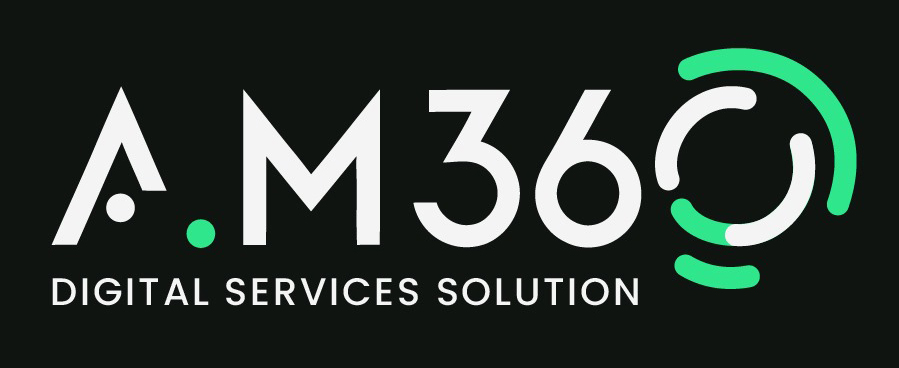
How to Become a Human Resource Manager in 2025: A Complete Career Guide
The human resources (HR) field is evolving rapidly. With automation reshaping recruitment, AI streamlining payroll, and remote work demanding new engagement strategies, HR professionals are more critical than ever. But is human resources a good career? The short answer: Yes. The U.S. Bureau of Labor Statistics (BLS) projects 6% growth for HR manager roles by 2032, with a median salary of $130,000/year (BLS Occupational Outlook). This 2025 guide breaks down how to enter, excel, and advance in HR—even if you’re starting from scratch. Table of Contents Is Human Resources a Good Career? Salary, Job Growth, and Future Trends What Do Human Resource Managers Do? Daily Tasks, Key Responsibilities, and Challenges What Is a Human Resource Generalist? How to Get Human Resources Certification SHRM, HRCI, and Emerging 2025 Credentials What Can You Do With a Human Resources Degree? What Degree Do You Need to Work in HR? Best Degrees for 2025 (Bachelor’s vs. Master’s) What Is Human Resource Appraisal? Performance Reviews, 360 Feedback, and Modern Tools What Does HR Do All Day? A Hour-by-Hour Breakdown 6 Steps to Become an HR Manager in 2025 FAQs About HR Careers 1. Is Human Resources a Good Career? Why HR is a High-Demand Field Job Security: HR roles are recession-resistant—companies always need hiring, compliance, and employee relations experts. Diverse Opportunities: From tech startups to healthcare giants, every industry needs HR professionals. Remote Work Flexibility: 42% of HR jobs offer hybrid or fully remote setups (FlexJobs 2024 Report). HR Salaries in 2025 Role Median Salary (U.S.) HR Manager $130,000 HR Generalist $65,000 Recruitment Specialist $62,000 Compensation Manager $128,000 Source: PayScale HR Salaries Future Trends Impacting HR Careers AI in Recruitment: Tools like HireVue automate resume screening but require HR oversight to avoid bias. Employee Wellbeing: 78% of companies now prioritize mental health programs (Forbes). DEI (Diversity, Equity, Inclusion): HR managers lead initiatives to close pay gaps and foster inclusive cultures. 2. What Do Human Resource Managers Do? HR managers wear many hats. Here’s a breakdown of their core responsibilities: Strategic Tasks Workforce Planning: Forecast hiring needs using tools like Visier or SAP SuccessFactors. Policy Development: Create handbooks covering remote work, harassment, and data privacy (e.g., GDPR compliance). Daily Operational Tasks Recruitment: Post jobs on LinkedIn or Indeed, conduct interviews, and negotiate offers. Employee Relations: Mediate conflicts between staff or managers. Benefits Administration: Manage health insurance, 401(k) plans, and wellness programs. Compliance & Legal Tasks Labor Law Adherence: Ensure compliance with OSHA, FMLA, and EEOC regulations. Audits: Conduct internal payroll or diversity audits to mitigate legal risks. 3. What Is a Human Resource Generalist? An HR generalist handles a broad range of tasks, acting as a jack-of-all-trades in smaller organizations. Key Duties Onboarding: Train new hires on company culture and tools. Payroll Support: Assist with processing via systems like ADP or Gusto. Policy Enforcement: Answer employee questions about PTO, benefits, or grievances. HR Generalist vs. HR Manager Generalist: Entry to mid-level role; executes day-to-day tasks. Manager: Oversees strategy, leads teams, and reports to executives. 4. How to Get Human Resources Certification Certifications validate your expertise and boost earning potential. Here are the top credentials for 2025: aPHR (Associate Professional in HR) Best For: Entry-level professionals with no HR experience. Cost: 300+300+100 application fee. Exam: 100 questions on HR fundamentals (HRCI aPHR Guide). SHRM-CP (Society for HR Management Certified Professional) Best For: Mid-career HR practitioners managing people or policies. Cost: 375−375−475 for members. Exam: 160 knowledge + situational judgment questions (SHRM Certification). PHR (Professional in Human Resources) Best For: HR professionals focused on U.S. labor laws. Cost: 395−395−495. Exam: 90 scored questions on employee relations and compliance (HRCI PHR). 5. What Can You Do With a Human Resources Degree? An HR degree opens doors to diverse roles: Talent Acquisition Specialist: Source candidates using LinkedIn Recruiter. Compensation Analyst: Design pay structures using PayScale or Salary.com data. Training & Development Manager: Create upskilling programs via platforms like Coursera for Business. Labor Relations Specialist: Negotiate union contracts and resolve disputes. For career inspiration, explore SHRM’s Career Resources (SHRM Career Map). 6. What Degree Do You Need to Work in HR? Best Degrees for HR Careers Bachelor’s in Human Resources: Covers labor law, organizational behavior, and HR tech. MBA with HR Concentration: Ideal for leadership roles (average salary boost: 45% (GMAC)). Psychology or Communications Degree: Useful for employee relations or training roles. Do You Need a Master’s Degree? While not mandatory, a Master’s in HR Management (MHRM) can fast-track promotions. Top programs include: Corn University’s ILR School (Program Link). University of Minnesota’s Carlson School of Management (MHRM Program). 7. What Is Human Resource Appraisal? HR appraisal (or performance appraisal) evaluates employee productivity, skills, and alignment with company goals. Modern Appraisal Methods 360-Degree Feedback: Collect input from peers, subordinates, and managers. OKRs (Objectives & Key Results): Measure progress toward goals (e.g., “Increase employee retention by 15%”). AI Tools: Platforms like Lattice automate feedback and track performance trends. For best practices, see Gallup’s Guide to Performance Reviews (Gallup). 8. What Does HR Do All Day? Here’s a typical day for an HR manager: 8:00 AM: Review applicant resumes for a senior developer role. 10:00 AM: Meet with department heads to discuss Q3 hiring budgets. 12:00 PM: Mediate a conflict between two team members over project ownership. 2:00 PM: Update employee handbooks to reflect new remote work policies. 4:00 PM: Analyze engagement survey data using Qualtrics. 9. 6 Steps to Become an HR Manager in 2025 Earn a Relevant Degree: Bachelor’s in HR, Business, or Psychology. Gain Entry-Level Experience: Start as an HR assistant or recruiter. Get Certified: SHRM-CP or PHR to stand out. Master HR Software: Learn Workday, BambooHR, or Zenefits. Network: Join SHRM local chapters or LinkedIn groups like HR Open Source. Pursue Leadership Roles: Aim for HR manager or director positions. 10. FAQs About HR Careers Q: Is human resources a stressful job? A: It can be—HR handles sensitive issues like layoffs and conflicts. However, strong communication skills and work-life balance mitigate stress. Q: What does HR do all day in small companies? A: HR generalists in startups often juggle recruiting, payroll, and compliance solo. Q: Do HR managers hire and fire employees? A: Yes. HR oversees hiring processes and often facilitates terminations to ensure legal compliance. Final Tips for 2025 HR Success Specialize: Consider niches like HR analytics or global
Read More
How to Become a Project Manager: 2025 Guide
The demand for skilled project managers is skyrocketing. According to the Project Management Institute (PMI), employers will need 25 million new project professionals by 2030, with roles paying a median salary of $116,000 annually in the U.S. (PMI Salary Survey). If you’re wondering, “How do I become a project manager?”—this 2025 guide covers everything from certifications to landing your first role without prior experience. 1. What Is Project Management? Project management is the practice of initiating, planning, executing, and closing projects to achieve specific goals within constraints like time, budget, and resources. It’s the backbone of industries from tech to healthcare, ensuring teams deliver results efficiently. Why Project Management Matters Reduces Risks: 59% of projects fail due to poor communication and unclear goals (PMI Pulse of the Profession). Boosts ROI: Companies using proven project management practices waste 28x less money (Harvard Business Review). For a foundational understanding, explore PMI’s A Guide to the Project Management Body of Knowledge (PMBOK® Guide), the global standard for project management methodologies (PMBOK® Guide, 7th Edition). 2. Key Elements of a Project Management Framework A project management framework is a structured approach to delivering projects. Let’s break down its core components: Phase 1: Initiation Define Objectives: Use a Project Charter to outline goals, scope, and stakeholders. Stakeholder Analysis: Identify decision-makers, influencers, and end-users. Tools like Stakeholder Mapping Matrices help prioritize communication. Phase 2: Planning Work Breakdown Structure (WBS): Divide projects into tasks (e.g., “Develop wireframes” for a software project). Gantt Charts: Visualize timelines using tools like Microsoft Project or ClickUp. Risk Management Plan: Anticipate obstacles (e.g., budget overruns) and assign mitigation strategies. Phase 3: Execution Agile vs. Waterfall: Agile: Iterative approach for fast-paced industries (e.g., software). Use Scrum or Kanban boards. Waterfall: Linear phases for construction or manufacturing projects. Phase 4: Monitoring & Controlling Key Performance Indicators (KPIs): Track progress with metrics like Schedule Variance (SV) or Cost Performance Index (CPI). Change Control Boards (CCBs): Formal groups to review and approve scope changes. Phase 5: Closure Post-Mortem Analysis: Document lessons learned (e.g., “Poor vendor communication delayed Phase 2”). Handover Reports: Ensure smooth transitions to operations teams. For a deep dive into frameworks, refer to the PMBOK® Guide or PRINCE2 methodologies (AXELOS PRINCE2). 3. Essential Assets for Project Managers To thrive in 2025, project managers need a mix of technical tools, soft skills, and certifications: Technical Assets Project Management Software: Asana: For task tracking and team collaboration. Jira: Ideal for Agile software teams (Atlassian Jira Guide). Smartsheet: Combines spreadsheets with automation. Data Analytics Tools: Tableau or Power BI for real-time project dashboards. Soft Skills Leadership: Inspire teams during high-pressure deadlines. Conflict Resolution: Mediate disputes between stakeholders. Storytelling: Present progress reports persuasively (e.g., “Our MVP launch aligns with a 20% market gap”). Certifications PMP (Project Management Professional): Gold standard for experienced PMs. Requires 35 hours of training and 3+ years of experience (PMI PMP Details). CAPM (Certified Associate in Project Management): Entry-level cert for beginners. CSM (Certified ScrumMaster): For Agile-focused roles. 4. How to Become a Project Manager Without Experience Breaking into project management without prior experience is possible with these strategies: Strategy 1: Leverage Transferable Skills Event Planning: Managed a corporate conference? Highlight budgeting and vendor coordination. Volunteer Leadership: Led a community fundraiser? Showcase team management and timeline adherence. Strategy 2: Start in Entry-Level Roles Project Coordinator: Assist senior PMs with scheduling and documentation. Average salary: $55,000/year (Glassdoor). Business Analyst: Bridge gaps between IT and business teams. Strategy 3: Build a Portfolio Freelance Projects: Use platforms like Upwork to manage small projects (e.g., website redesigns). Case Studies: Document hypothetical projects (e.g., “How I’d Plan a Product Launch in 6 Weeks”). 5. Step-by-Step Guide to Project Management Certification Certifications validate your expertise and open doors to higher salaries. Here’s how to earn them: Step 1: Choose the Right Certification Certification Best For Cost Exam Details CAPM Beginners 225−225−300 150 questions, 3-hour exam PMP Experienced PMs 405−405−555 180 questions, 3 domains CSM Agile/Software Teams 1,000−1,000−1,400 2-day training + exam Step 2: Prepare for the Exam Study Resources: Rita Mulcahy’s PMP Exam Prep: Best-selling guide for PMP aspirants. Udemy Courses: Affordable CAPM/PMP prep courses (Udemy PMP Course). Mock Exams: Simulate test conditions with platforms like PM Training. Step 3: Maintain Your Certification PDUs (Professional Development Units): Earn 60 PDUs every 3 years for PMP via webinars or workshops. 6. The Role of Change Management in Projects Change is inevitable in projects. 72% of PMs say scope creep is their top challenge (Wellingtone Report). Here’s how to manage it: Best Practices for Tracking Changes Change Request Forms: Document requested changes (e.g., “Add chatbot feature to MVP”). Version Control: Use GitHub for software projects or Google Drive for document tracking. Impact Analysis: Assess how changes affect timelines/budgets (e.g., “Adding X feature delays launch by 2 weeks”). Tools for Change Management Monday.com: Automate change approval workflows. Notion: Centralize change logs and stakeholder feedback. 7. Top Tools for Modern Project Managers (2025 Edition) Stay ahead with these 2025-recommended tools: AI-Powered Tools: ClickUp Brain predicts delays using historical data. Remote Collaboration: Miro for virtual whiteboarding and Loom for async video updates. Sustainability Trackers: Ecochain measures project carbon footprints. 8. FAQs About Project Management Careers Q: Does a project manager track and record changes? A: Yes! PMs use change logs, version history tools, and software like Smartsheet to monitor adjustments. Q: Can I become a PM without a degree? A: Absolutely. Certifications (CAPM/PMP) and hands-on experience often outweigh degrees. Q: What industries hire the most PMs? A: Tech, healthcare, construction, and finance (U.S. Bureau of Labor Statistics). 9. Future Trends in Project Management (2025 and Beyond) AI-Driven Decision Making: Tools like Forecast.app automate resource allocation. Hybrid Frameworks: Blend Agile and Waterfall for industries like healthcare. Sustainability Focus: 67% of firms prioritize eco-friendly projects (Gartner). Final Tips for 2025 Success Network Relentlessly: Join PMI Chapters or LinkedIn groups like Project Managers Hub. Master AI Tools: Stay relevant by learning platforms like Zapier for workflow automation. Specialize: Consider niches like Healthcare PMP or Agile Transformation.
Read More